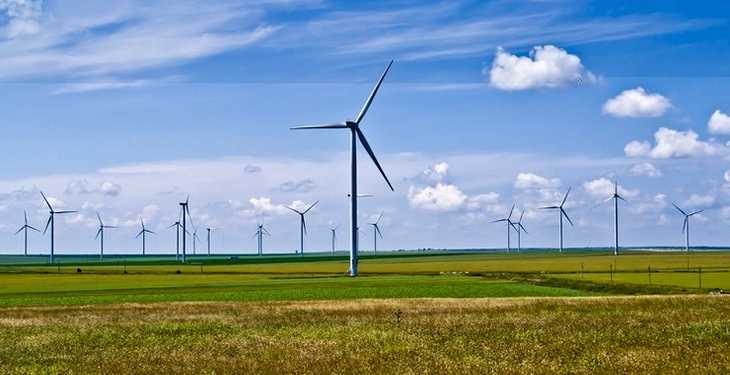Romanian Association for Wind Energy (RWEA) announced in a statement that it welcomes the decision of the authorities to take steps to amend renewables legislation and thw support schemes for manufacturers, severely affected by legislative changes in the last three years.
“RWEA supports rational decisions aimed at finding a reasonable compromise between ensuring the financial performance of producers in the renewables industry and minimizing the impact on end consumers, both household and industrial users,” the release reads.
However, RWEA officials say that although the project proposed by the Government is perfectible and does not eliminate entirely the producers’ risk, they “hope that the current draft emergency ordinance will be adopted without further changes that could affect once again, producers of energy from renewable sources”.
“A measure that would perpetuate or even worsen the current state would be fatal to the wind energy industry,” said Claudia Brânduş, Chairman of the Board of Directors of RWEA.
RWEA praises that the draft EO keeps the minimum price of green certificates as it was assumed at the time of investment and on which the business plans of producers were made; also that it defines and secures the number of green certificates to be purchased each year, while increasing the number from that which would have been reached without legislative amendment; that it prolongs the life of the certificates throughout the lifetime of the scheme of support since 2017 and introduces mechanisms for transparent and fair trading for all participants in the market.
“These improvements come while maintaining a sustainable and predictable impact on final consumer (housholds -e.n.), which are estimated by ANRE to an average increase of RON 0.6 per month.
A project to improve
“RWEA campaigned, in proposals advanced to the Ministry of Energy in 2016 and in previous years, included, for a better balance of the supply and demand of green certificates in order to provide certainty to all producers that they would sell thecertificates in their portfolio. From this perspective, the project proposed by the Government is subject ro further improvements, “reads the release.
“The draft EO does not totally eliminates the producers’ risk, on the contrary, in some cases it increases it. Thus, it is not clearly defined the impact on the end consumer; in this regard there is only a ban related to not overcome it; the draft laso eliminates the indexing of the value of GC with the inflation in the euro area, while the price of the certificates is established in the European single currency, and lowers penalties for providers who do not fulfill their obligation to purchase green certificates”.
The association’s members also transmits that they accept some sacrifices, such as the recovery of deferred certificates over a longer period of time, in order to reach a reasonable compromise and they understand, also, to contribute to this normalization by accepting the necessary concessions to limit the impact on end-consumers. An example is the postponed certificates’ reinsertion in eight years, and not in three years, as provided for in current legislation. RWEA appreciates the authorities’ efforts to find a balanced and sustainable solution.
“On the other hand, the association can not accept additional losses over those imposed by the current legislation or other measures that would lead to new retroactive financial losses.”
The wind industry has been most affected by the retroactive measures imposed by law the years 2013-2014, when it lost half the number of allowances payable under the state scheme.
1 billion euros loss
Thus, the wind industry’s losses are enormous in the period 2014-2015, as shown in financial studies conducted by independent advisors, available to the authorities and the media. According to those, at the end of 2015 the loss was of nearly 1 billion euros, compared to a total of 5 billion worth investments in wind energy.
The wind industry is a major project in Romania, with more than 3,000 MW installed which were a financial effort of over 5 billion euros. The development of this industry was generated by law 220/2008 for the promotion of energy from renewable energy sources, subsequently amended in 2010.
Since 2013, a series of legislative changes were introduced and they have introduced majors financial shocks to the industry, creating difficulties in the operation of installed units. The independent study conducted by consulting firm Ernst and Young (EY) revealed, based strictly on financial statements submitted by companies in the Trade Register, that the wind industry losses were, in 2014 and 2015, of over 4.1 billion lei, mainly due to extraordinary depreciation of assets (impairment) of about 2.5 billion lei the wind companies were forced to resort as a result of lost cash flows after the retroactive change of the legislation.
Meanwhile, the Romanian Wind Energy Association has taken steps and made constant efforts to bring the legislation to a minimum of economic functionality for the renewables industry, simultaneously taking into account the interests of consumers.
“Therefore, we hope that the current draft emergency ordinance will be adopted without further changes that could affect, once again, the producers of renewable energy.”
The installed capacity of renewable energy producers totaled 4,701 MW at the end of September this year, according to data centralized by Transelectrica.
Recently, the association of small investors in renewable PATRES appreciated that the new renewables law, in its present form, sends the small investors, especially those involved in PV projects, into bankruptcy.

